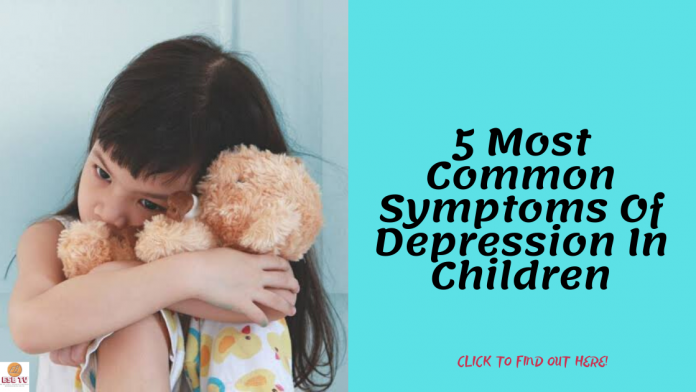How can you tell when a child is depressed? They are always so full of life and joy. They can look sad or be sad for a moment, but all it takes is the promise or the actual production of something sweet or nice to cheer them up. But what if your child is actually depressed? How can you tell that your child is going through something more deep and emotional than you know?
Before you begin to think about this, you must first know what childhood depression is all about. Childhood depression is quite different from the normal sadness they experience every time. When children are just sad, it doesn’t take much to make them happy. But when there is depression, there is a lingering feeling of sadness, hopelessness and helplessness. Here are 4 most common signs that your child is battling depression.

Abnormal Sleeping Pattern
When your child is constantly sleeping or does not sleep enough, then it is time for you to pay closer attention to them. Most times, parents mistake childhood depression for normal behavior. Sometimes, these sleeping pattern can fluctuate daily. This means, they may sleep for almost a whole day, and on the next day, they stay awake for long hours before sleeping. They might sleep during the day and stay awake during the night. Abnormal sleeping habits is a great indicator for childhood depression.
You may also like to read: 5 Hidden Signals He Is Falling In Love With You
Changes In Eating Habits
When you notice a child that normally has a healthy eating habit, switch to abnormal eating patterns, then you might have a depressed child in your hands. For instance, he or she might be someone who enjoys snacks more than food, and then all of a sudden, they do not have appetite for such food anymore. When this happens, you might want to take a closer look and possibly take them for diagnosis and treatment.

Social Withdrawal
One of the easiest ways to know when a child is depressed is through their social habits. When someone is depressed, they do not relate with their fellow children anymore. They are caught up in their conflicted emotions and what they feel to think about associating with others. It is much easier to notice when the child is a bubbly and social person. This way, you will easily spot the transition from an extrovert to a recluse. When this occurs, then your child may be battling depression.
Read Also: Introvert And Extrovert- Who Is Healthier?
Lack Of Concentration
Every child is bright enough to excel in all academics, but when that child begins to experience a decline in concentration and other academic situations, then it a call for alarm. When a child is bothered about something, or when they are depressed, they do not bother about other things including their academics. Lack of concentration in vital situations is an eye-opener for childhood depression.
















